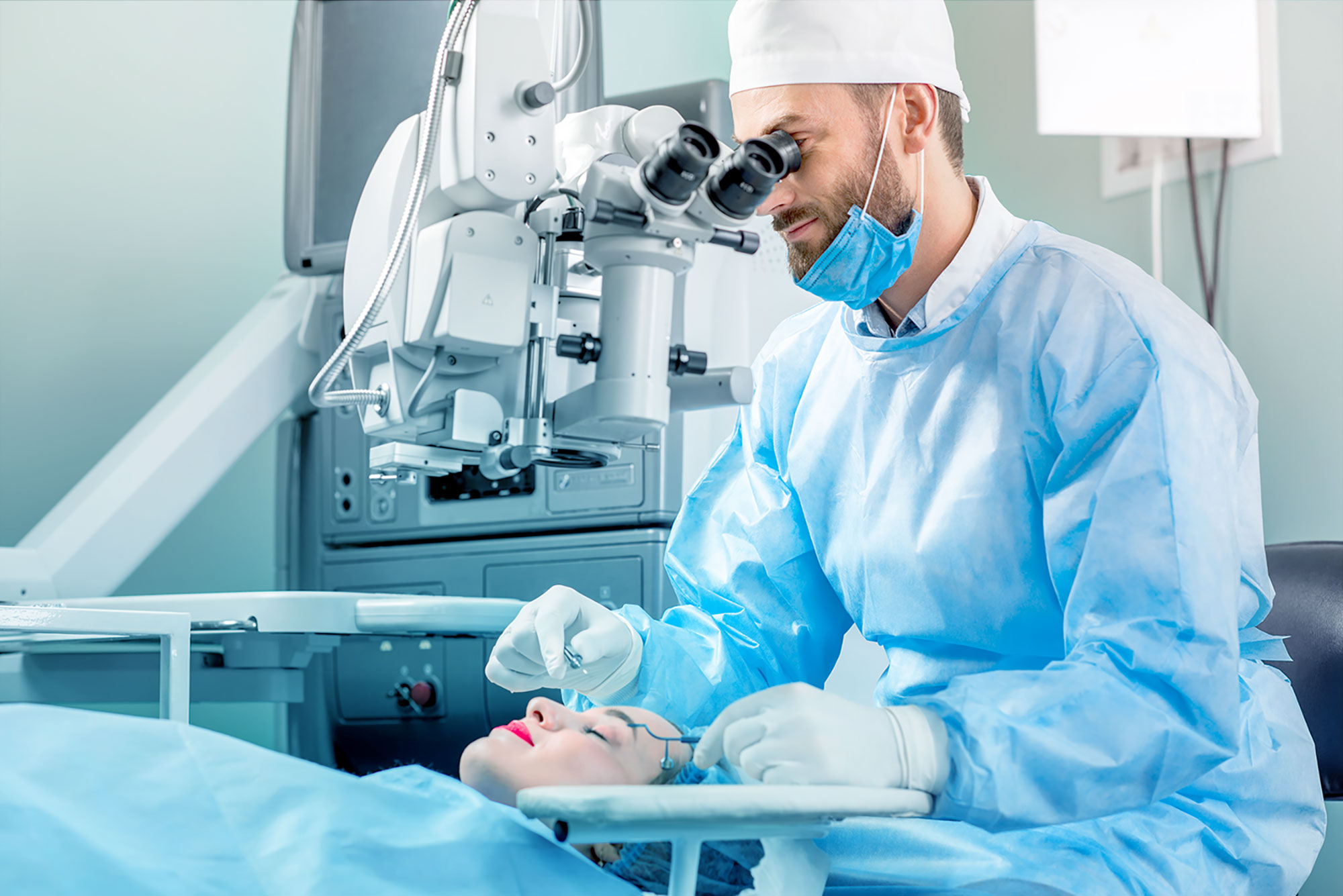Magrabi Health offers cutting-edge laser and vision correction services in Dubai, Abu Dhabi, and Al Ain. With the latest technology and a team of expert ophthalmologists, we provide multiple correction treatments for life-changing results.

Laser eye surgeries such as LASIK, PRK, and SMILE are elective procedures. Thanks to modern science, these have proved to be quality treatments for myopia, hyperopia, and astigmatism. By reshaping the cornea they improve vision and reduce the need for glasses or contacts. Technological advancements make them safe and highly effective for the right candidates.

At Magrabi Health, we provide customised LASIK and vision correction using the latest technology to achieve the best results. We understand that each patient has unique needs. We take the time to guide you through your options and set clear expectations. Our goal is to enhance both, your vision and quality of life.
Seasonal allergies cause itchy, red eyes. While vision correction won't cure allergy issues, it enhances eye comfort by eliminating the use of contacts and specs.

In physical work environments, like kitchens or outdoor jobs, LASIK eliminates the hassle and risks of glasses, offering better convenience.

Nearsightedness can lead to night blindness, making it difficult to see in low light. LASIK can improve night vision. Our ophthalmologists will assess your condition to provide personalised guidance.

If glasses make you self-conscious, LASIK can help you get rid of them, boost your confidence, and feel comfortable in your skin.


At Magrabi Health, we offer a range of vision correction options to suit diverse vision needs and lifestyles. Whether you’re considering LASIK, PRK, or other laser procedures, our team tailors each treatment to ensure a comfortable and safe path to clear vision.
FemtoLASIK is a state-of-the-art, bladeless procedure that uses femtosecond laser technology to create a precise corneal flap, offering enhanced safety and accuracy. It’s minimally invasive, fast, and promotes quicker healing with minimal discomfort. FemtoLASIK is ideal for patients looking for a modern alternative to traditional LASIK with added precision.
Using advanced laser technology, LASIK reshapes the cornea to correct vision with high precision. It’s a fast, comfortable procedure that delivers amazing results.
PRK is a great alternative for those who may not be suitable for LASIK. This highly effective procedure also reshapes the cornea to correct vision and offers long-lasting results. It is ideal for active individuals or those with thinner corneas.
PresbyMax is an innovative laser procedure designed specifically for individuals over 40 experiencing presbyopia. By reshaping the cornea, it improves both near and distance vision without the need for reading glasses. It’s a personalized solution that offers clear, natural vision at all distances.
Whether you’re considering LASIK, PRK, or other laser procedures, our team tailors each treatment to ensure the desired results.
When it comes to your eyes, choosing the right doctors is critical. We have on board a highly skilled and compassionate team of eye doctors, surgeons, and ophthalmologists dedicated to providing exceptional care for your vision needs.

We’re proud of the difference we make in our patients' lives. Hear firsthand how our LASIK and vision correction treatments across the UAE have transformed their vision and confidence.